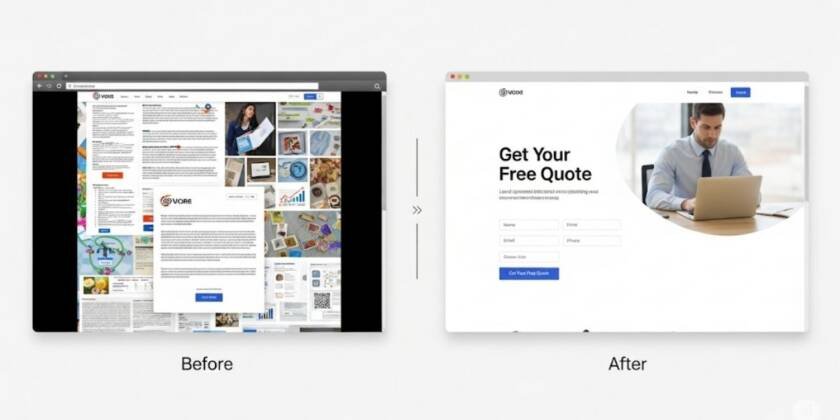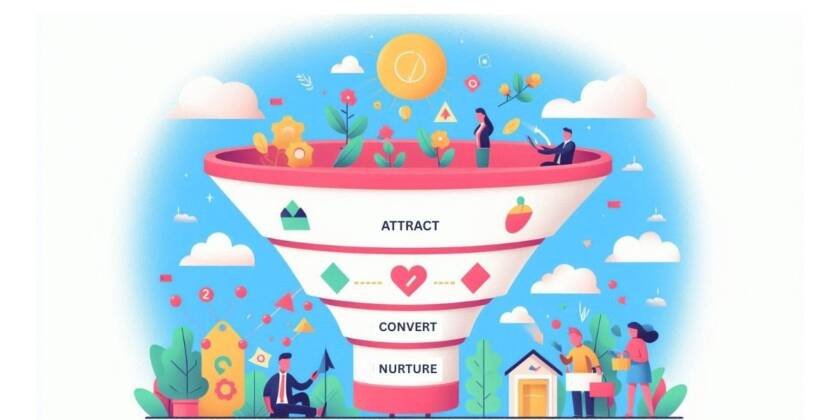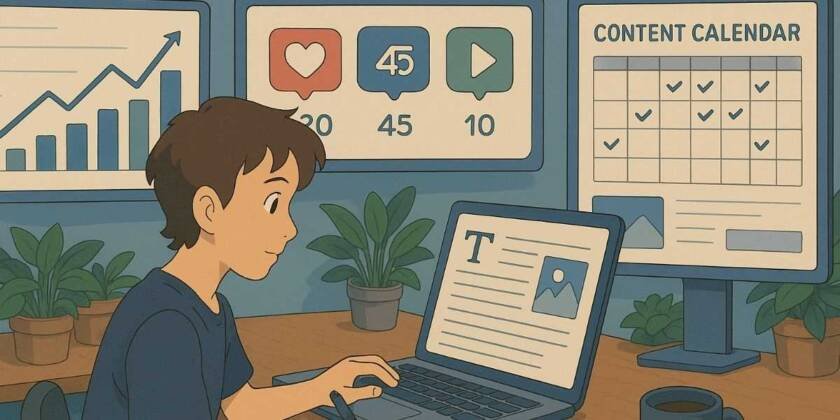In today’s hyper-competitive startup ecosystem, designing for lead generation is no longer a marketing “nice-to-have” — it’s a survival strategy. As a team of digital strategists, UX/UI designers, content specialists, developers, and social media managers, we’ve watched too many innovative startups fade out — not because their product wasn’t good, but because their website and digital presence weren’t engineered to consistently attract and convert leads.
In 2025, success isn’t just about launching a cool product; it’s about designing every digital touchpoint with lead generation at its core — turning curious visitors into engaged prospects, and browsers into buyers.
What’s Going Wrong?

Most startups focus 90% of their energy on building the product and only 10% on building the system that brings in customers. The result?
A good-looking website with no conversion strategy.
Digital Strategist’s POV: Build a Funnel — Not Just a Website

Pain Point: Lots of traffic, almost zero leads or follow-ups.
Why: No value exchange, no path for users to convert.
Fix: Lead Generation Funnel
-
Attract → Content, blogs, ads, PR mentions
-
Engage → Offer a lead magnet in exchange for email (ebook, template, webinar)
-
Convert → Dedicated landing pages + clear CTA
Example: A SaaS startup offering a free “Checklist to Reduce Employee Burnout” captured 2,000+ emails in 60 days — which later became paid subscribers.
UX/UI Designer’s POV: Looks Nice ≠ Converts

Pain Point: Beautiful pages… but users get lost.
Fix: Conversion-Centered Design
-
Simplify navigation → fewer menu items, no distractions
-
Make CTAs bold and clear → “Get Your Free Guide”, “Book Demo”
-
Short, mobile-friendly forms → ask only email at first
Remember: People don’t read websites — they scan them. Guide them.
Content Strategist’s POV: Speak to Pain, Not Product

Pain Point: Content is too feature-heavy, buzzwordy, and self-focused.
Fix: Story-Driven, Value-First Copy
-
Use Problem → Agitate → Solution flow
-
Talk benefits, not features
-
Lead magnets should solve micro-problems your ideal user faces right now
Example: Instead of “Sign up for updates”, say “Get our 7-step template to grow your next 1,000 subscribers.”
Web Developer’s POV: Don’t Let Tech Kill the Lead

Pain Point: Slow, buggy, non-responsive site = abandoned visits.
Fix: Optimized, Mobile-First Website
-
Compress images & clean code → speed under 3s
-
Mobile-first testing → most traffic is mobile
-
Test forms on all browsers/devices → no lead lost due to bugs
Social Media Manager’s POV: Stop Broadcasting — Start Capturing

Pain Point: Posts get likes… but no leads.
Fix: Social-Driven Lead Funnels
-
Promote lead magnets on social with strong hooks
-
Use native lead-gen ad formats (LinkedIn Lead Forms, FB Lead Ads)
-
Build community → live AMAs, polls, DM engagement builds trust → leads
How AI Can Supercharge Lead Generation in 2025

AI isn’t replacing marketers — it’s amplifying them.
-
Use AI chatbots on landing pages to qualify leads 24/7
-
Deploy predictive analytics to segment leads by intent
-
Use AI-based personalization on website (showing different CTAs based on user behavior)
-
Auto-generate A/B test headlines for landing pages to improve conversion rates continuously
Want a lead-gen machine, not just a website?
Get in touch with IxD Hub — we’ll build a startup presence designed to attract, engage, and convert leads consistently.
Reach out via WhatsApp or our Contact Form to get started.
FAQs
Q1. Do I really need a lead magnet or can I just ask for signups?
Lead magnets drastically improve conversion rates. People need value first before giving their email.
Q2. What makes a good lead magnet?
Specific, actionable, and solves a tiny but urgent problem your target user has.
Q3. How many fields should I have in my signup form?
Start with just one (email). You can collect more info progressively later.
Q4. Should startups invest in landing pages early?
Absolutely — it’s one of the fastest ways to validate messaging and generate warm leads.




